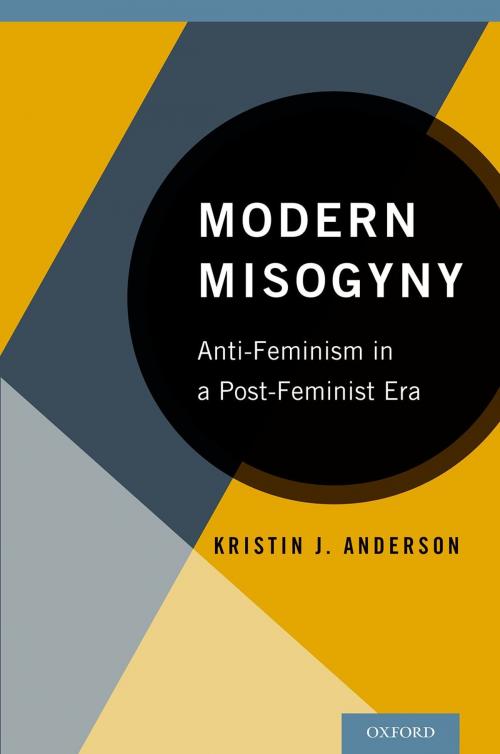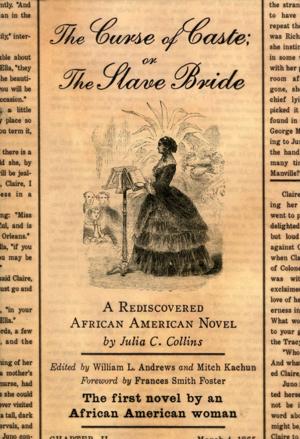Modern Misogyny
Anti-Feminism in a Post-Feminist Era
Nonfiction, Health & Well Being, Psychology, Social Psychology, Social & Cultural Studies, Social Science, Gender Studies, Women&| Author: | Kristin J. Anderson | ISBN: | 9780199328192 |
| Publisher: | Oxford University Press | Publication: | August 26, 2014 |
| Imprint: | Oxford University Press | Language: | English |
| Author: | Kristin J. Anderson |
| ISBN: | 9780199328192 |
| Publisher: | Oxford University Press |
| Publication: | August 26, 2014 |
| Imprint: | Oxford University Press |
| Language: | English |
Pundits and politicians often opine on the irrelevance of feminism and the women's movement today. Some commentators describe the state of feminism as "post-feminist," alongside equally questionable claims of Barack Obama's election as signaling a "post-racial" America. Modern Misogyny examines contemporary anti-feminism in a "post-feminist" era. It considers the widespread notion that the feminist movement has ended, in large part because the work of feminism has been completed. In fact, the argument goes, women have been so successful in achieving equality, it is now men who currently are at risk of becoming irrelevant and unnecessary. These sentiments make up modern anti-feminism. Modern Misogyny argues that equality has not been fully achieved and that anti-feminism is now packaged in a more palatable, but stealthy form. This book addresses the nature, function, and implications of modern anti-feminism in the United States. Modern Misogyny explores the landscape of popular culture and politics, emphasizing relatively recent moves away from feminist activism to individualism and consumerism where "self-empowerment" represents women's progress. It also explores the retreat to traditional gender roles after September 11, 2001. It interrogates the assumption that feminism is unnecessary, that women have achieved equality, and therefore those women who do insist on being feminists want to get ahead of men. Finally, it takes a fresh look at the positive role that feminism plays in today's "post-feminist" era, and how feminism does and might function in women's lives. Post-feminist discourse encourages young women to believe that they were born into a free society, so if they experience discrimination, it is an individual, isolated problem that may even be their own fault. Modern Misogyny examines that rendering of feminism as irrelevant and as the silencing and marginalizing of feminists. Anderson calls for a revived feminism that is vigilant in combatting modern forms of sexism.
Pundits and politicians often opine on the irrelevance of feminism and the women's movement today. Some commentators describe the state of feminism as "post-feminist," alongside equally questionable claims of Barack Obama's election as signaling a "post-racial" America. Modern Misogyny examines contemporary anti-feminism in a "post-feminist" era. It considers the widespread notion that the feminist movement has ended, in large part because the work of feminism has been completed. In fact, the argument goes, women have been so successful in achieving equality, it is now men who currently are at risk of becoming irrelevant and unnecessary. These sentiments make up modern anti-feminism. Modern Misogyny argues that equality has not been fully achieved and that anti-feminism is now packaged in a more palatable, but stealthy form. This book addresses the nature, function, and implications of modern anti-feminism in the United States. Modern Misogyny explores the landscape of popular culture and politics, emphasizing relatively recent moves away from feminist activism to individualism and consumerism where "self-empowerment" represents women's progress. It also explores the retreat to traditional gender roles after September 11, 2001. It interrogates the assumption that feminism is unnecessary, that women have achieved equality, and therefore those women who do insist on being feminists want to get ahead of men. Finally, it takes a fresh look at the positive role that feminism plays in today's "post-feminist" era, and how feminism does and might function in women's lives. Post-feminist discourse encourages young women to believe that they were born into a free society, so if they experience discrimination, it is an individual, isolated problem that may even be their own fault. Modern Misogyny examines that rendering of feminism as irrelevant and as the silencing and marginalizing of feminists. Anderson calls for a revived feminism that is vigilant in combatting modern forms of sexism.















